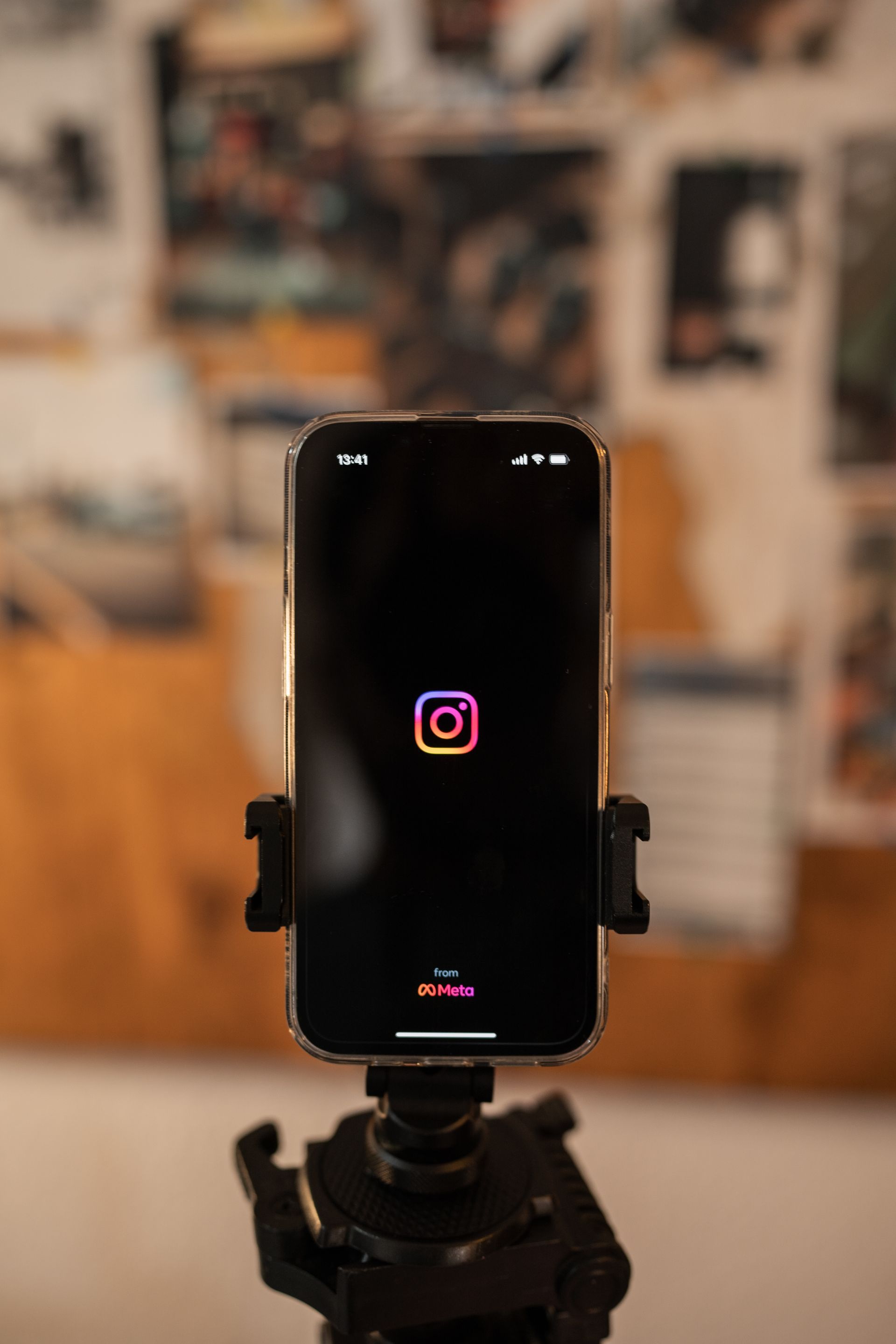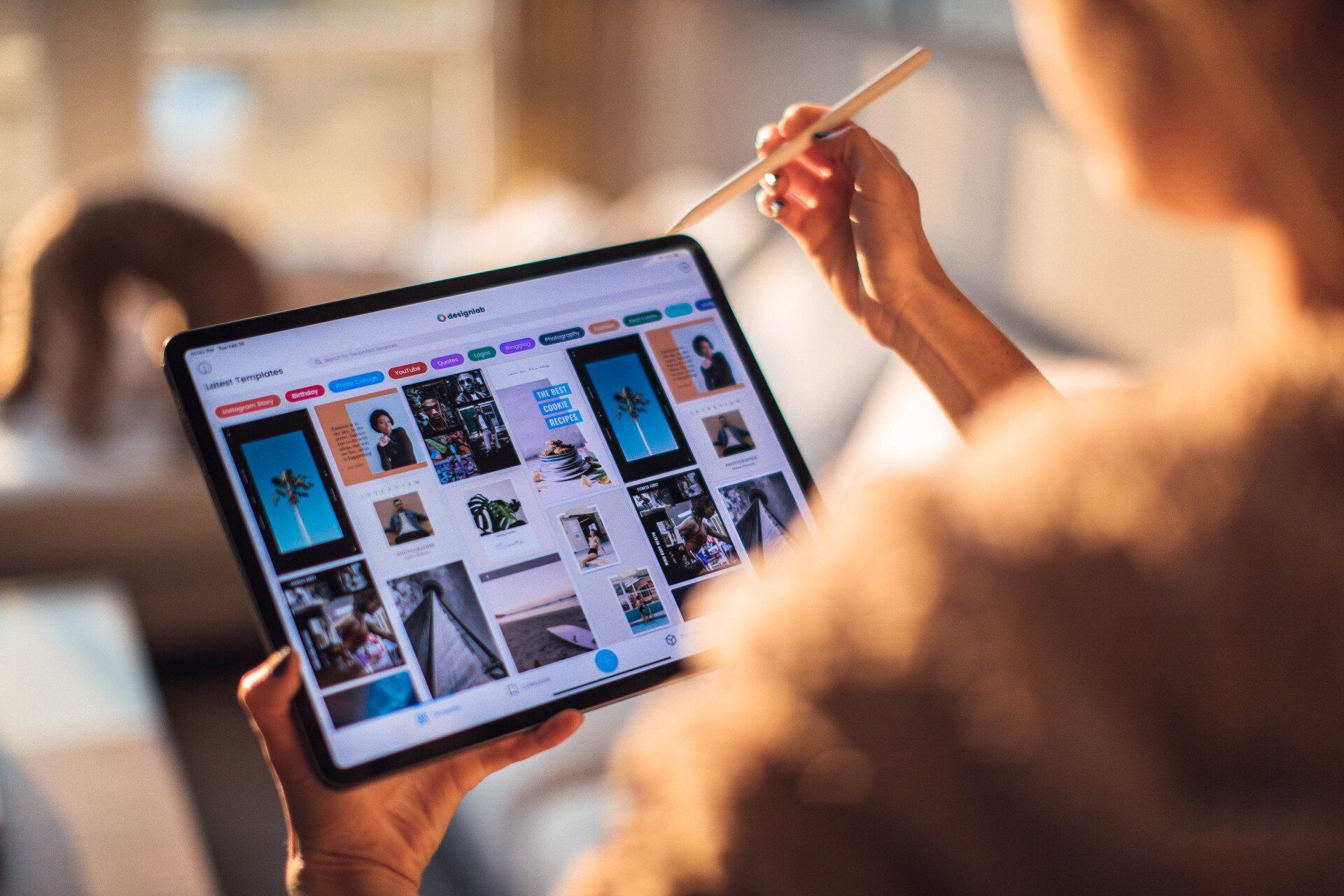-THE SOCIAL BLOG-

By Caitlin Nagy
•
October 3, 2023
In the rapidly evolving world of digital marketing, choosing the right platforms to showcase your brand, engage with your audience, and achieve your goals is crucial. With a plethora of options available, it's essential to focus your efforts where they will yield the best results. In this blog, we'll explore the top platforms to utilize in digital marketing to help you navigate the digital landscape effectively. 1. Google Ads: Google Ads, formerly known as Google AdWords, is a powerful platform for pay-per-click (PPC) advertising. It enables businesses to display their ads in Google search results and across the Google Display Network. With precise targeting options and a massive user base, Google Ads is ideal for reaching potential customers when they're actively searching for products or services related to your business. 2. Facebook: As one of the largest social media platforms, Facebook offers unparalleled reach. Facebook Ads allow you to target users based on demographics, interests, and behaviors. The platform also provides detailed analytics, enabling you to measure the performance of your ad campaigns and make data-driven decisions. Additionally, Facebook-owned Instagram is a valuable channel for visually appealing content and influencer collaborations. 3. Instagram: Instagram's visual nature makes it an excellent platform for brands with compelling imagery. Leveraging Instagram for marketing allows you to connect with a younger, visually-oriented audience. Features like Stories, Reels, and shopping tags provide diverse options for engaging content and driving conversions. It's particularly effective for industries like fashion, beauty, travel, and lifestyle. 4. LinkedIn: LinkedIn is the go-to platform for B2B marketing and professional networking. With a focus on businesses and career professionals, LinkedIn Ads can help you target decision-makers, generate leads, and promote thought leadership content. It's particularly valuable for industries such as tech, finance, and professional services. 5. YouTube: Video content is on the rise, and YouTube is the largest video-sharing platform globally. Creating engaging video content and using YouTube Ads can help you reach a vast audience. YouTube offers various ad formats, including TrueView ads, skippable ads, and bumper ads, catering to different marketing objectives. 6. Twitter: Twitter is a platform that thrives on real-time conversations and trends. It's great for promoting timely content, running hashtag campaigns, and engaging with your audience directly. Twitter Ads can help you reach a broad or niche audience, depending on your goals. 7. Pinterest: Pinterest is a visual discovery platform with a primarily female user base. It's ideal for brands in the fashion, home decor, DIY, and food industries. Pinterest Ads allow you to showcase your products through visually appealing pins. 8. TikTok: TikTok is a short-form video platform that's exploded in popularity, especially among younger audiences. Brands can create engaging and entertaining content through TikTok Ads, influencer partnerships, and hashtag challenges. 9. Email Marketing Platforms: Email marketing remains a highly effective channel for nurturing leads and retaining customers. Platforms like Mailchimp, Constant Contact, and HubSpot enable you to create and automate email campaigns, segment your audience, and track performance. 10. Content Management Systems (CMS): While not a marketing platform per se, a robust CMS like WordPress or Drupal is essential for managing your website and creating and publishing high-quality content. In conclusion, the digital marketing landscape is vast and diverse, and the choice of platforms should align with your target audience, goals, and budget. It's often advisable to use a mix of platforms to create a comprehensive digital marketing strategy. Regularly assess the performance of your campaigns, adapt to changing trends, and refine your approach to maximize your digital marketing success.

By Caitlin Nagy
•
October 1, 2023
In the ever-evolving world of marketing, campaigns come and go. Some achieve remarkable success, while others fade into obscurity. What separates the winners from the rest often boils down to a single critical component—the strategy. Yes, the strategy is the very heart of any successful marketing campaign. It's the compass that guides you through the ever-shifting landscape of consumer behavior, technology, and trends. Here, we delve into why the strategy is the most important part of a marketing campaign and how it can make or break your efforts: 1. Clear Objectives and Goals: A well-crafted marketing strategy begins with clear and measurable objectives. These goals serve as your North Star, providing direction to your entire campaign. Are you aiming to increase brand awareness, drive sales, or boost customer engagement? Without a solid strategy, it's like setting sail without a destination in mind. 2. Target Audience Understanding: Understanding your target audience is a cornerstone of effective marketing. Your strategy should define your ideal customers, their preferences, pain points, and behaviors. A well-researched strategy enables you to tailor your messaging and tactics to resonate with your audience, forging a stronger connection. 3. Competitive Analysis: In the world of marketing, knowing what your competitors are up to is invaluable. A robust strategy involves a comprehensive competitive analysis, identifying strengths, weaknesses, opportunities, and threats. Armed with this knowledge, you can position your campaign to stand out in the market. 4. Message and Brand Consistency: Consistency is key in marketing. A strategy ensures that your messaging and branding remain cohesive across all channels and touchpoints. This consistency helps build brand recognition and trust, two critical factors in consumer decision-making. 5. Allocation of Resources: Your strategy dictates where and how you allocate your resources—time, budget, and manpower. Without a clear plan, you risk wasting resources on ineffective channels or activities that don't align with your goals. 6. Adaptation and Optimization: A good strategy isn't static; it's dynamic. It allows for adaptability and optimization based on real-time data and insights. Regularly monitoring campaign performance against your strategy empowers you to make informed adjustments to maximize results. 7. Return on Investment (ROI): Ultimately, your marketing campaign's success is measured by its ROI. A well-thought-out strategy helps track and evaluate the effectiveness of your efforts. It enables you to determine which components of the campaign are delivering the best results and which may need refinement. 8. Long-Term Sustainability: While short-term wins are essential, a solid marketing strategy also considers long-term sustainability. How will your campaign contribute to the growth and longevity of your brand? A strategy with a future-focused mindset ensures that your marketing efforts have a lasting impact. In conclusion, a marketing campaign without a well-defined strategy is like a ship without a rudder, drifting aimlessly in turbulent waters. The strategy is the nucleus that guides every decision, action, and resource allocation throughout the campaign. It's the difference between a marketing campaign that fizzles out and one that soars to new heights of success. So, remember, when planning your next marketing endeavor, start with a robust strategy—it's the heartbeat of your campaign.

By Caitlin Nagy
•
September 25, 2023
Instagram has emerged as one of the most influential social media platforms for businesses and marketers. With its visually appealing content and vast user base, it offers a unique space to connect with audiences and promote brands. However, navigating Instagram marketing can raise several questions. In this blog, we'll explore the top four questions about marketing on Instagram and provide insights to help you make the most of this platform. 1. What Types of Content Perform Best on Instagram? Instagram is all about visual storytelling, and various content formats can thrive on the platform: High-Quality Imagery : Stunning photos are the foundation of Instagram. Invest in visually appealing, well-composed images that reflect your brand's aesthetic. Engaging Videos : Short video content, such as reels and Stories, is gaining popularity. Use them to showcase your products, share behind-the-scenes glimpses, or provide quick tutorials. User-Generated Content (UGC) : Encourage your customers to create content featuring your products. UGC builds trust and authenticity. Educational Content : Informative captions, infographics, and how-to guides can resonate well with your audience. Live Videos : Go live to connect with your followers in real-time. Use it for Q&A sessions, product launches, or showcasing events. 2. How Can I Increase My Instagram Engagement? Boosting engagement on Instagram requires a mix of strategies: Consistent Posting : Maintain a regular posting schedule to keep your audience engaged. Use Relevant Hashtags : Research and use relevant and trending hashtags to expand your reach. Engage With Your Audience : Respond to comments, messages, and engage with your followers' content. Build a sense of community. Collaborate With Influencers : Partner with influencers who align with your brand for broader exposure. Host Contests and Giveaways : Encourage user participation and engagement through contests and giveaways. 3. How Can I Measure the Effectiveness of My Instagram Marketing? Instagram provides valuable insights to measure your marketing efforts: Instagram Insights : Access metrics such as reach, impressions, engagement, and follower demographics. Link Tracking : Use UTM parameters to track website traffic from Instagram. Conversion Tracking : If you're running ads, set up conversion tracking to measure actions like website visits and purchases. Engagement Metrics : Analyze likes, comments, shares, and saves to gauge content performance. Follower Growth : Monitor your follower count and the growth rate over time. 4. Is Instagram Advertising Worth It? Instagram advertising can be highly effective when used strategically. It allows you to target specific demographics, interests, and behaviors. The platform offers various ad formats, including photo ads, video ads, carousel ads, and Stories ads. Consider your goals, budget, and target audience when deciding if Instagram advertising is worth the investment. In conclusion, Instagram is a dynamic platform with vast marketing potential. By creating compelling content, engaging with your audience, measuring your efforts, and exploring advertising options, you can harness the power of Instagram to grow your brand, reach new audiences, and drive meaningful engagement. Keep learning and adapting to the evolving trends and features on Instagram to stay ahead in the ever-changing social media landscape.

By Caitlin Nagy
•
September 18, 2023
In today's digital age, having a well-defined digital marketing strategy is no longer a luxury but a necessity for businesses of all sizes. A carefully crafted strategy can be the difference between success and obscurity in the competitive online landscape. Let's explore six compelling reasons why you need a digital marketing strategy. 1. Clarity of Purpose and Goals: One of the primary reasons to develop a digital marketing strategy is to establish clear objectives and goals. Without a roadmap, your efforts can become scattered and inefficient. A strategy helps you define what you want to achieve, whether it's increasing brand awareness, driving website traffic, generating leads, or boosting sales. It provides a sense of direction that keeps your team focused and aligned. 2. Targeted Audience Engagement: Understanding your target audience is crucial for effective marketing. A well-crafted strategy helps you identify and profile your ideal customers. You can delve into their demographics, preferences, pain points, and online behavior. Armed with this knowledge, you can tailor your content and messaging to resonate with your audience, resulting in higher engagement and conversion rates. 3. Resource Allocation Efficiency: Digital marketing encompasses various channels and tactics, such as social media, email marketing, content marketing, SEO, and paid advertising. A strategy helps you allocate your resources—time, budget, and manpower—more efficiently. You can focus on the platforms and activities that align with your goals and deliver the best ROI, preventing wasted efforts and resources. 4. Competitive Advantage: In a crowded online marketplace, a digital marketing strategy can provide a competitive edge. By analyzing your competitors, you can identify gaps in the market, emerging trends, and opportunities to differentiate your brand. Your strategy can position your business as a thought leader, innovator, or industry expert, helping you stand out in the digital noise. 5. Data-Driven Decision-Making: Digital marketing generates a wealth of data, from website analytics to social media metrics. A strategy enables you to collect, analyze, and leverage this data to make informed decisions. You can track key performance indicators (KPIs), measure the success of your campaigns, and optimize your tactics based on real-time insights. This data-driven approach ensures that you continuously improve your digital marketing efforts. 6. Adaptation to Changing Trends: The digital landscape is in constant flux, with new technologies, platforms, and trends emerging regularly. A strategy provides a framework for staying agile and adapting to these changes. It allows you to test and experiment with new ideas while maintaining a consistent brand presence. By staying ahead of the curve, you can capitalize on emerging opportunities and stay relevant in your industry. In conclusion, a digital marketing strategy is not an optional extra—it's a foundational element of modern business success. It provides clarity, direction, and focus for your digital marketing efforts, ensuring that you maximize your online presence and achieve your business objectives. Whether you're a startup or an established enterprise, investing in a well-thought-out digital marketing strategy is a wise decision that can yield significant returns in the digital age. Don't wait; start planning your digital marketing strategy today!

By Caitlin Nagy
•
September 11, 2023
In the digital age, technology has become the backbone of modern marketing campaigns. From sophisticated analytics tools to automated advertising platforms, technology empowers marketers with powerful resources to reach and engage their target audiences. However, it's essential to understand that technology alone is not enough to guarantee a successful digital campaign. In this blog, we'll explore why a comprehensive approach goes beyond the tools at your disposal. 1. Strategy and Purpose: While technology can automate tasks and provide data insights, it doesn't define the overarching strategy or purpose of your campaign. A well-crafted digital campaign begins with a clear understanding of your objectives, target audience, and messaging. Technology should be a means to execute your strategy, not a replacement for it. 2. Content Quality: No matter how advanced your marketing tools are, they can't create high-quality, compelling content on their own. Content is the heart and soul of your digital campaign, and it requires creativity, authenticity, and relevance. Human input is vital for crafting engaging blog posts, videos, social media updates, and other content that resonates with your audience. 3. Human Connection: Building meaningful relationships with your audience is a cornerstone of successful digital marketing. While chatbots and automated responses can handle routine inquiries, they can't replace the warmth and empathy of human interaction. Authentic engagement requires human communication, such as responding to comments, addressing concerns, and showcasing your brand's personality. 4. Creativity and Innovation: Technology can streamline processes and optimize advertising placements, but it can't replace the power of human creativity and innovation. Brainstorming new ideas, experimenting with different approaches, and pushing boundaries in design and messaging are essential for staying ahead in the competitive digital landscape. 5. Adaptability: Digital campaigns often require rapid adaptation to changing circumstances, trends, and customer behaviors. While technology can provide data-driven insights, it's up to humans to interpret this data and make informed decisions. Flexibility and the ability to pivot when necessary are crucial for maintaining campaign effectiveness. 6. Emotional Connection: Consumers often make decisions based on emotions and human experiences. Building an emotional connection with your audience involves storytelling, empathy, and understanding their needs and desires. These aspects can't be automated or replaced by technology alone. 7. Brand Authenticity: Maintaining brand authenticity and trust requires a human touch. Authenticity is about being transparent, genuine, and true to your brand's values. While technology can assist in managing online presence, it's the people behind the brand who ensure that authenticity shines through. 8. Continuous Learning: The digital landscape is ever-evolving, with new platforms, algorithms, and trends emerging regularly. Staying updated and adapting to these changes requires human expertise, curiosity, and a commitment to continuous learning. Technology tools can't replace the need for ongoing education and skill development. In conclusion, technology is an invaluable enabler for digital campaigns, providing automation, data insights, and scalability. However, the success of a digital campaign ultimately hinges on the people behind it—strategists, content creators, community managers, and creative thinkers who bring the human touch, authenticity, and innovation needed to engage and connect with audiences effectively. To truly succeed in the digital space, embrace technology as a tool within a holistic strategy that centers on human-driven creativity, connection, and purpose.

By Caitlin Nagy
•
September 4, 2023
Marketing campaigns often appear seamless and polished to the outside world. However, the truth is that behind every successful campaign, there's a dedicated team working tirelessly to ensure its success. Today, we're taking you behind the scenes of a marketing campaign, giving you an exclusive glimpse into the workings of the Social Page Marketing Group. The Brainstorming Phase: Every successful marketing campaign begins with a spark of creativity. In the brainstorming phase, the Social Page Marketing Group gathers to exchange ideas, draw inspiration from industry trends, and uncover innovative ways to captivate the target audience. This is where the campaign's concept takes shape, and the team envisions the story they want to tell. Strategic Planning: Once the concept is solidified, it's time for strategic planning. This involves defining clear objectives, understanding the target audience, and selecting the most suitable channels and tactics. The team carefully hones in on the message, ensuring it aligns with the campaign's goals and resonates with the audience. Content Creation and Design: Behind every eye-catching campaign, there's a team of content creators and designers hard at work. They craft compelling copy, design stunning visuals, and develop engaging multimedia content. Every word, image, and video is carefully chosen to convey the campaign's message effectively. Technical Wizardry: In today's digital age, technical aspects play a crucial role in marketing campaigns. The technical team ensures that the campaign's website, landing pages, and any interactive elements function flawlessly. They also handle data analytics, tracking user behavior, and monitoring key performance indicators. Engagement and Community Management: Social media campaigns rely heavily on community engagement. The Social Page Marketing Group's community managers are the heart and soul of this aspect. They respond to comments, spark conversations, and build a sense of community around the campaign. Authentic engagement is their secret sauce. Ad Campaign Management: For campaigns that involve paid advertising, the ad campaign management team meticulously sets up, monitors, and optimizes ad placements. They keep a close eye on budget allocation, ad performance, and audience targeting to ensure maximum ROI. Influencer Collaboration: Many modern campaigns leverage the power of influencers. The Social Page Marketing Group liaises with influencers whose values align with the campaign's message. Negotiations, partnerships, and collaboration planning are all part of the behind-the-scenes effort to make influencer marketing work seamlessly. Monitoring and Optimization: The work doesn't end once the campaign is live. The team continuously monitors performance, analyzing data to identify what's working and what needs improvement. They make real-time adjustments to maximize the campaign's impact and ROI. Celebrating Success and Learning from Challenges: When a campaign succeeds, it's time to celebrate the hard work and dedication of the team. However, it's also crucial to conduct post-campaign evaluations. The Social Page Marketing Group reviews what went well and what could be improved, turning every campaign into a learning experience. In conclusion, behind every captivating marketing campaign lies a talented and dedicated team working diligently to bring the vision to life. The Social Page Marketing Group, like many other successful marketing agencies, understands that the journey from concept to execution is a collaborative effort that demands creativity, strategy, technical expertise, and unwavering dedication. It's this behind-the-scenes work that transforms ideas into impactful campaigns that resonate with audiences and achieve remarkable results.